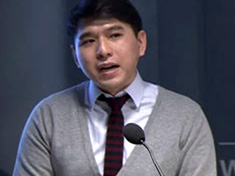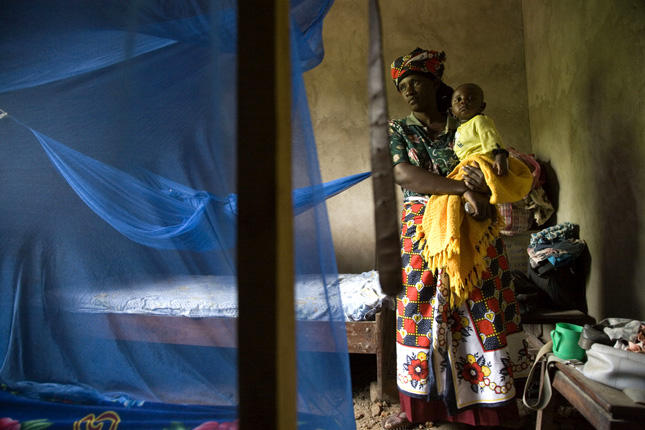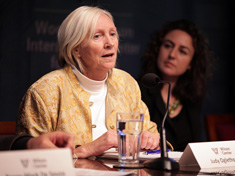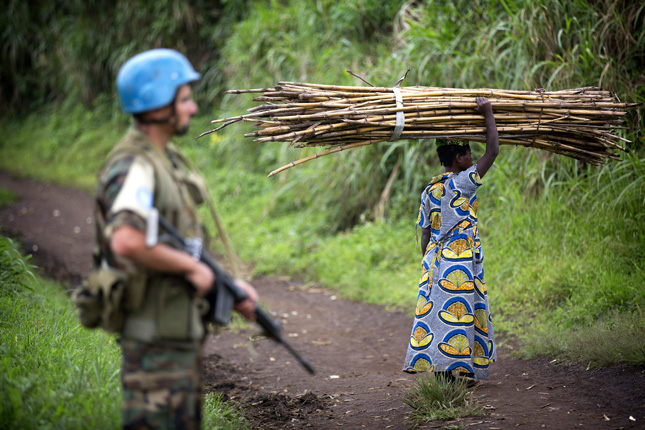-
Eric Chu on Translating Climate Adaptation Theory to Action on the Local Level
›
“Adaptation is very theoretical. When you talk about ‘resilience,’ you draw these Venn diagrams and you draw these really complex issues, but at least at the IPCC level, we didn’t spend a lot of time thinking about what people were actually doing,” says Eric Chu in this week’s podcast.
-
Lisa Palmer, Yale Environment 360
Colombian Farmers Adjust to Changing Conditions With “Climate-Smart” Agriculture
›February 10, 2015 // By Wilson Center Staff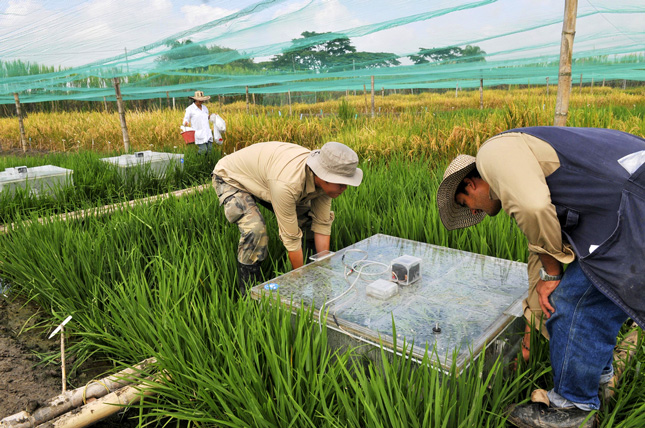
Rice is a thirsty crop. Yet for the past three years, Alberto Mejia has been trying to reduce the amount of water he uses for irrigation on his 1,100-acre farm near Ibague in the tropical, central range of the Colombian Andes.
-
Report: Damming of Lake Turkana Could Leave Thousands Without Water, Provoke Tribal Conflict
›The damming of a river that feeds the world’s largest desert lake could lead not only to less drinking water for thousands of Kenyans, but international conflict between tribes for what little water remains.
-
Jeffrey Gettleman, The New York Times
Mosquito Nets Used for Fishing Raise Sustainability, Health Questions
›January 28, 2015 // By Wilson Center Staff
BANGWEULU WETLANDS, Zambia – Out here on the endless swamps, a harsh truth has been passed down from generation to generation: There is no fear but the fear of hunger.
-
Judy Oglethorpe: Fighting Environmental Change in Nepal Through Community Empowerment
› -
Broken Landscape: Confronting India’s Water-Energy Choke Point
›“We don’t know the reason for the death of fish in downstream villages,” Hamberton Nongtdu, a mine owner from the northeastern Indian state of Meghalaya, told me.
-
Reporting on the Spaces Between: How to Cover Climate, Population, and Health Connections
›
In his 2007 best-seller, The World Without Us, Alan Weisman explored what would happen to the planet if the human race suddenly vanished – the gradual deterioration of the built environment, the geologic fossilization of our everyday stuff, and the ecological processes that would rebound and thrive without continual and growing human pressure. [Video Below]
-
UN Report Highlights Women’s Roles in Natural Resource Management During and After Conflict
›
It’s been 14 years since the UN Security Council adopted Resolution 1325 acknowledging women as important agents of change in recovery from conflict and peacebuilding generally. But between 1992 and 2011, only four percent of signatories in 31 major peace processes around the world were women, and only 12 out of 585 peace agreements referred to or made provisions for women’s needs in the reconstruction process.
Showing posts from category water.


